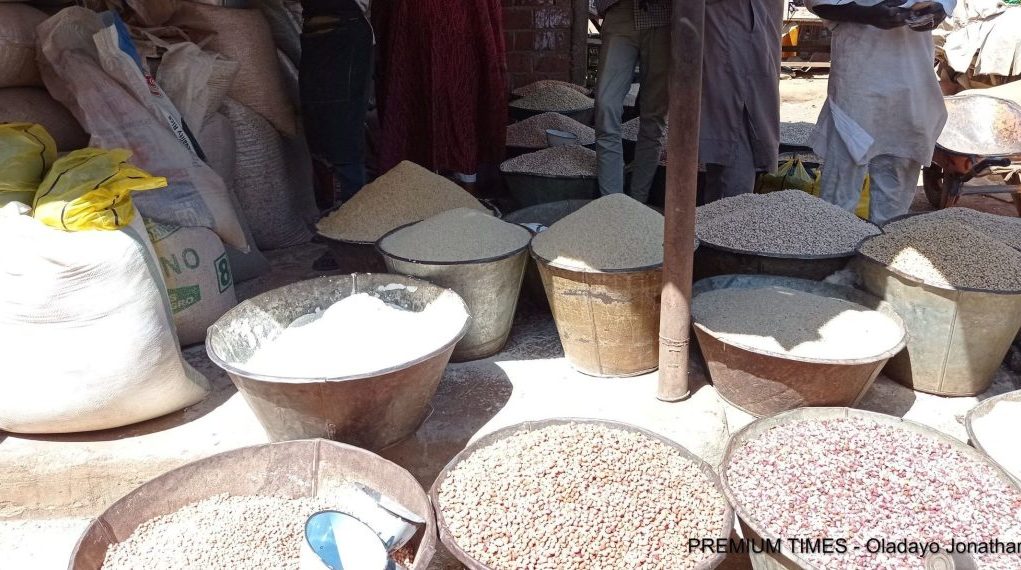
Nigerian taxpayers will have to pay twice as much to feed their president and vice president in 2022 as food prices continue to rise, even as the citizens themselves ironically remain at the same income level that has left many struggling daily to buy food.
Food inflation reached its highest level in 12 years in March, with the average price of food 22.95 per cent more expensive than a year ago. While the rise has slowed in the last six months, headline and food inflation remained significantly high at 16.63 per cent and 19.57 per cent respectively in September, according to the National Bureau of Statistics.
As prices of goods and services rise across the country, millions struggle daily to buy food with a naira that has fallen 32 per cent between September 2020 and October 2021 at the parallel market. Nigeria relies on imports to meet domestic demand for key food such as fish, sugar, wheat (used for bread production), and maize and soybeans, vital for poultry feeds.
A PREMIUM TIMES survey in July showed that the prices of protein and carbohydrate-rich foods rose 58 per cent in the last year. While the cost of protein-rich foods rose by an average of 60.5 per cent, carbohydrates quickened 59 per cent. A report in June showed the country failed to produce enough cassava, about the most popular source of carbohydrate in Nigeria, despite decades of investments.
The rise in food prices became pronounced in 2018 after Nigeria closed its land borders and blocked access to foreign exchange for food importers as part of efforts to encourage domestic production. With local production not rising as expected, the measures only led to a significant rise in prices, made worse by rising insecurity.
Amid the increase, millions of working Nigerians have retained the same income and the minimum wage remains N30,000. Many families have reported having to spend their entire salaries or a little less on just food.
Presidential Food
In an apparent response to quickening food prices, the first and second families have doubled their feeding bill for next year at the expense of public revenue.
The breakdown of the proposed 2022 budget, which is awaiting the approval of the National Assembly, shows that Mr Buhari and Mr Osinbajo’s offices will spend N457 million on food. That is more than twice what was allocated for food in 2021 and the previous years.
In 2021, N195.5 million was approved for the feeding expenses for the two offices. While Mr Buhari received N124 million, Mr Osibanjo got N71 million.
The same amounts applied in 2020, 2019 and 2018. The figure was N115 million in 2017 and N103 million in 2016.
For next year, the president’s office will spend N301 million on foodstuff and catering materials supplies, while the vice president’s bill was put at N156 million.
Likewise, refreshments and meals will take N50.9 million for the two highest offices. A total of N30.6 million was allocated for the president while N20 million was slated for the vice president.
Speaking with PREMIUM TIMES, an agricultural expert, Obinna Chukwuezie, said it was “ridiculous” for the presidential food bill to rise significantly at a time of low government revenue and high food inflation that has left most citizens declining purchasing power.
“A lot of people live below one dollar a day and a lot of people go hungry every day,” he said. “When you see the number of hungry people in Nigeria the statistics will shock you but amid hunger in the country, N457 million is budgeted for just two families.”
“So, my question is what kind of food are they going to eat? Because at the age of the president what the doctor will advise him to eat is mainly vegetables and enough water,” Mr Chukwuezie said.
“I still can’t understand why they proposed that kind of money on feeding when we have a lot of issues in this country that the money can solve.”




















































